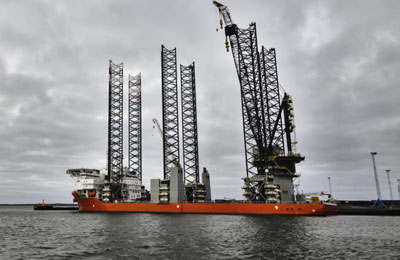
Rediscovering the art of exploration
Dubai, March 17, 2013
While sustained exploration success requires many capabilities, management consulting firm Booz & Company, identifies organizational culture as the key factor separating oil companies that consistently outperform their rivals from others.
In recent years, independent oil and gas companies have made major new exploration discoveries, particularly in frontier areas. Meanwhile, at the largest oil companies, a focus on short-term financial results has taken precedence over exploration for new reserves, endangering long-term performance.
National Oil Companies (NOCs) in the Mena region focus primarily on optimising production; in line with this, the exploration of new resources – conducted by the NOC or by International Oil Company (IOC) partners – retains an important role in maximizing the value of the overall resource base.
While NOCs cannot simply replicate the more informal culture of smaller, successful IOC explorers, there are a number of practical steps that they can take to instill or improve exploration-minded cultural attributes. After all, doing so will lead to more discoveries in their own operated ventures, and help guide the management of IOC-led exploration ventures, says Booz & Company.
IMPORTANCE OF CULTURE
Sustained exploration success requires many capabilities and characteristics, including world-class geoscience skills, the ability to operate in difficult environments, strong business development networks, and the financial discipline to manage risks effectively. However “organisational culture is the factor that we hear cited most often in our work with companies that consistently outperform in exploration”, said David Branson, an executive advisor with Booz & Company.
“They say that the self-reinforcing patterns of belief, thought and behaviour that define an organisational culture contribute more significantly to their success rather than any particular technology or technique”.
Every company’s unique culture is reflected in three key dimensions – people, processes and organisational structure. Successful exploration companies generally place a high value on geoscience talent and often link rewards to reflect overall company performance rather than individual achievements.
“Processes in successful exploration companies – such as the evaluation of risk – can be surprisingly simple, yet widely understood and consistently applied,” added Sean Wheeler, a partner with Booz & Company, “This, however, can only occur if there are open discussions on successes or failures and, by ensuring that useful lessons from the past are learned across the board.”
Exploration companies today often adopt flat organization structures that give geoscience teams full access to senior leadership; decisions are, thus, often made on the basis of direct communication among small groups of empowered individuals.
PRACTICAL STEPS
There is no single method or formulaic approach that assures exploration success for every company. In actuality, each organization must choose an approach that is aligned with its unique culture, risk tolerance policy and broader operating principles.
“For this reason, we do not recommend that NOCs try to emulate the less formal culture of successful yet smaller IOC explorers,” explained Branson. “There are, however, a number of practical steps – related to people, processes and organizational structures – that can help any NOC improve its exploration performance.”
With respect to the people dimension, NOCs should assess the talent in the company to ensure that the company complements highly-skilled technical specialists with explorers with a record of significant discoveries. Furthermore, NOCs should ensure that IOC partners deploy their best explorers for related projects, and make this high standard a key criterion for partner selection.
“In effect, successful explorers tend to ask the “what-if” questions that lead to discoveries. NOCs’ own peer reviews and their technical discussions with IOCs should equally be refocused on the “what-ifs” as well as challenge conventional wisdom and support innovation and creativity,” said George Chehade, a partner with Booz & Company.
“NOCs may need to review their reward systems and performance contracts so as to align individual and corporate exploration goals to deliver the best exploration results for the NOC as a whole.”
Improving Mena exploration performance will also require reviewing and amending the processes by which the NOC and its IOC partners reach investment decisions. “Many recent discoveries were known by other companies prior to drilling but were rejected as they did not meet their investment criteria for financial risk and reward or materiality thresholds,”said Wheeler.
NOCs should ensure that their own internal investment criteria strike the right balance between risk and potential rewards, and that IOC partners are adequately incentivised to invest, taking into consideration of the risk/reward profile of the exploration opportunities on offer. Within their own portfolios, NOCs should implement or strengthen transparent and consistent portfolio analysis and budget allocation processes to ensure that budget and resources are allocated to those exploration opportunities having the greatest potential for value creation.
With NOC primary focus on production optimisation, senior NOC leaders should not overlook the role that exploration may play in transforming the NOC portfolio. NOCs should ensure that the organisation places sufficient focus on exploration and that the exploration function is given due weight in the organisation, and is resourced accordingly. Elevating the profile of exploration within the NOC will support attracting the best talent to exploration. NOCs should also ensure that the role of the central exploration organisation is balanced with the role of exploration in asset organizations to ensure an optimal mix between stimulating innovation and creativity in the asset, and adherence to centrally-driven standards and portfolio optimisation.
Finally, the informal, interactive elements of organisational culture should not be overlooked. “Senior leaders in NOCs should signal the importance of behaviours that support exploration – such as cross-disciplinary teaming, entrepreneurship, and open communication, and highlight people who exhibit these qualities,” advised Chehade.







